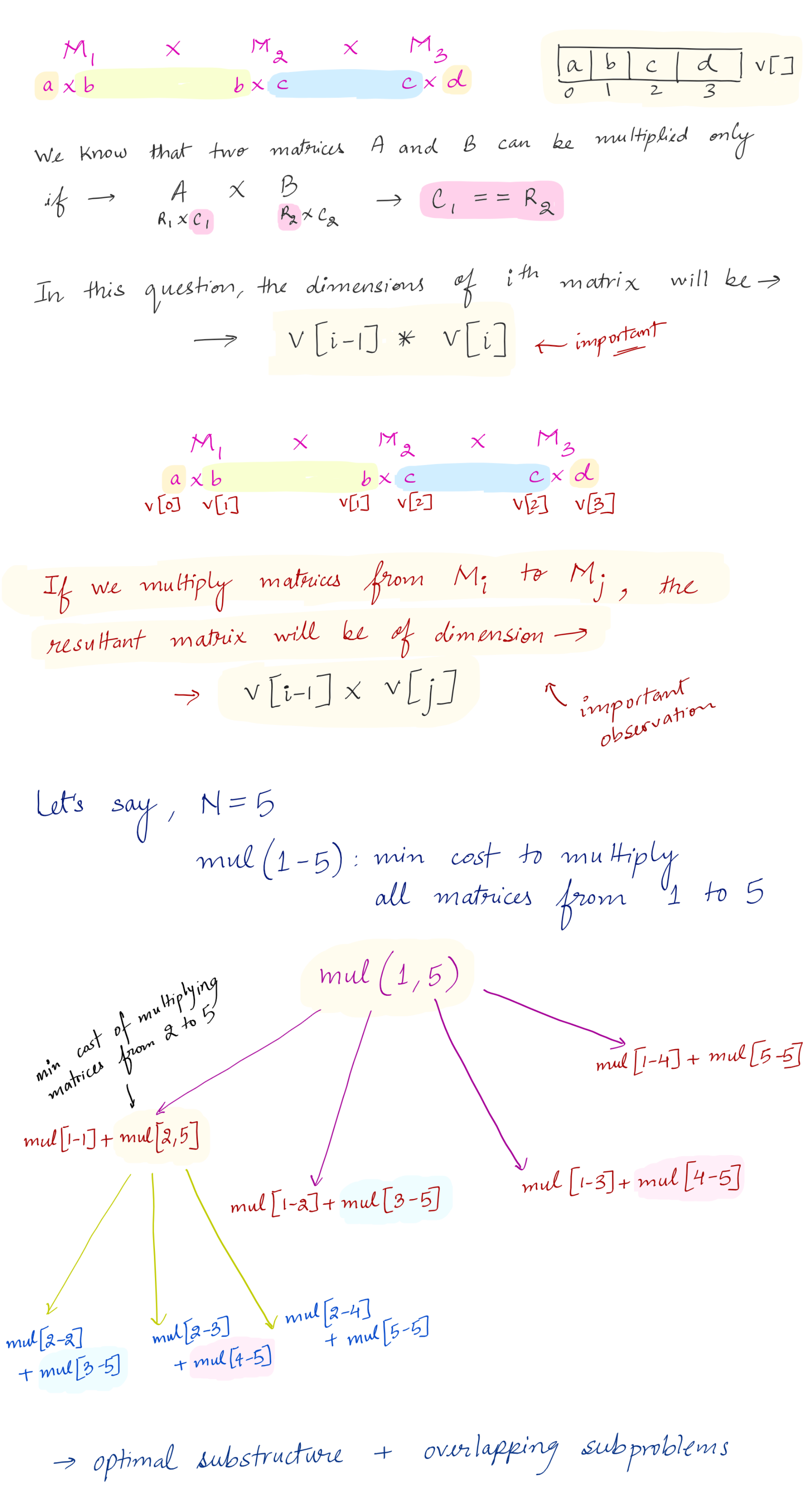Problem Description
Given a sequence of matrices, find the most efficient way to multiply these matrices together. The efficient way is the one that involves the least number of multiplications.
The dimensions of the matrices are given in an array arr[] of size N (such that N = number of matrices + 1) where the ith matrix has the dimensions (arr[i-1] x arr[i]).
Matrix Chain Multiplication

1
2
3
4
5
6
7
8
9
10
11
12
13
14
15
16
17
18
19
20
21
22
23
24
25
26
27
28
29
30
31
32
33
34
35
36
37
38
39
40
41
42
43
44
45
46
47
48
49
50
public class Solution {
public int solve(int[] A) {
//number of matrices
int n = A.length-1;
//init
int[][] dp = new int[n+1][n+1];
for(int i=0; i<dp.length; i++){
Arrays.fill(dp[i], -1);
}
//final answer will be at dp[1][n]
return mul(1, n, dp, A);
}
public int mul(int i, int j, int[][] dp, int[] v){
//if i and j are same, no need to multiply since it's the matrix itself
if(i == j) return 0;
if(dp[i][j] == -1){
int currentMin = Integer.MAX_VALUE;
//Example: (A)(BCD), (AB)(CD), (ABC)(D) -> min cost among all options
for(int k=i; k<j; k++){
int m1 = mul(i, k, dp, v);
int m2 = mul(k+1, j, dp, v);
//additional cost of multiplying the two matrix we got from above
int c = v[i-1] * v[k] * v[j];
//update min cost
currentMin = Math.min(currentMin, m1 + m2 + c);
}
dp[i][j] = currentMin;
}
return dp[i][j];
}
}
